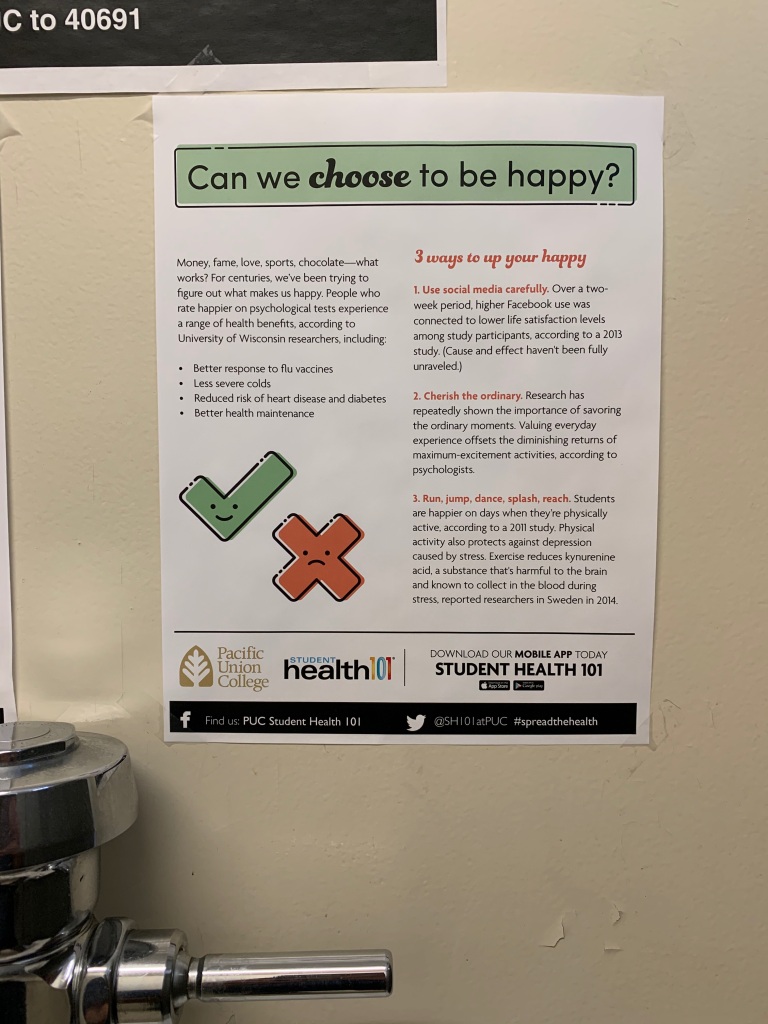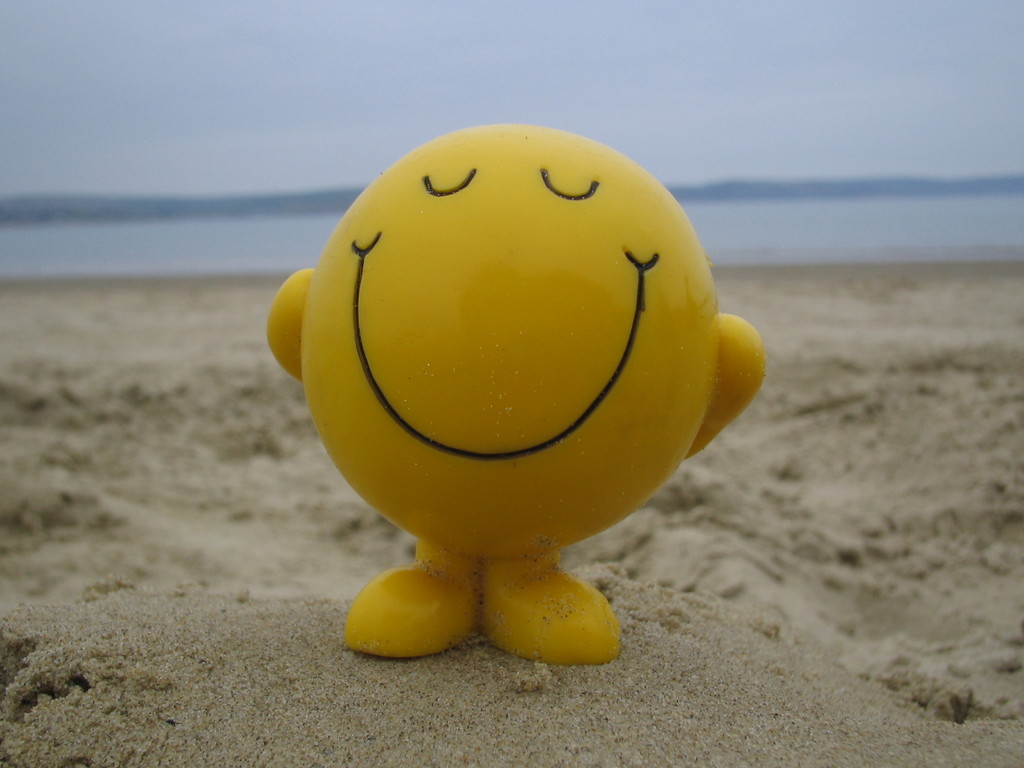
The single page flyer taped to the wall above the urinal caught my attention with the headline – Can We Choose to Be Happy? Part of a wellness emphasis on campus, flyers like these were not uncommon, and placing one above a urinal certainly would get someone’s undivided focus. I contemplated the message before me. Is it that easy? Can I choose to be happy?
Standing there, the porcelain receptacle and shiny, chrome flushing hardware barely inches away, I had an epiphany. Choosing to be happy, I concluded, is like choosing to have an ulcer, or like choosing to be thin. I can’t choose to immediately be thin. I can just make choices and behave in a way that results in my losing weight. Similarly, I can’t choose to be instantly happy. I can however make choices and behave in a way that results in happiness.
Eating the right kinds of food, in the right amounts, at the right time of day will lead to my losing weight. But what about being happy? What kinds of thinking and behavior will lead to happiness? How about –
+ Choosing to be grateful.
+ Choosing to nurture a forgiving spirit.
+ Choosing to really love people, especially the important people in your life.
+ Choosing integrity, and being the person you want to be.
+ Choosing to include fun in your life? Go to the movie. Go on the bike ride. Meet a friend for tennis.
+ Choosing not to procrastinate. Get the project or assignment done, whether it is organizing the garage or doing your taxes. Whatever your tough task is, it may not be as tough as you think if you just get started. And once completed you will smile as a burden is lifted from your shoulders.

You don’t have to do all of these things to be happy, but you have to choose to embrace some of them. The list isn’t comprehensive, but it still is a pretty good list. The more of these ways of being you choose, the happier you will be.
The flyer above the ‘you know what’ wasn’t asking a bad question, just a question that easily misleads us. We can’t choose to be immediately happy because happiness is a feeling, and human beings cannot directly control feelings. What we can control is what we think and how we act. And yes, what we think and what we do will have an effect on what we feel, so in that way the flyer is on the right track.
Some might say this is a technicality, but this distinction is much more significant than a mere technicality. A person can become focused on and mired in his feeling state and then become driven to affect or change the feeling. This is what drives all self-medicating behaviors. Whether the behavior involves alcohol, drugs – both legal and illegal, food, porn, shopping, gambling, or sex (to name a few), it is about changing brain chemistry in a way that affects how the person feels. Self-medicating does indeed provide a high or moment of release, but it is temporary, and always increasingly so, which leads to the self-medicating habit cycle repeating, again and again, the never ending habit becoming a prison of addiction and private shame. This distinction is vital to understand!
Happiness is an inside job.
Don’t assign anyone else that much power over your life.
Trying to achieve the feeling of happiness is illusive and confusing. It is as undoable as my choosing to immediately self-clean my arteries of plaque. Feelings and physiology are in the realm of the “not directly controllable.” Feelings are important, mind you, much more so to some than to others, but they come out of and into alignment with my thinking and my actions.
Who knew urinals can be the sites of such epiphanies?


